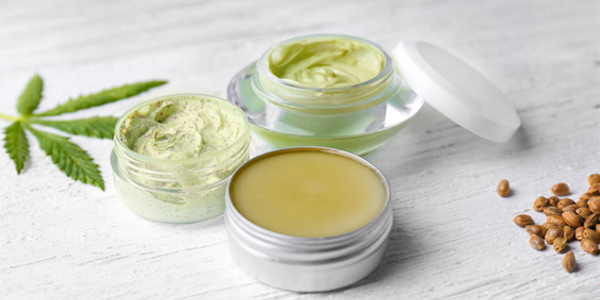On December 12, 2018, the U.S. Congress passed the Agricultural Improvement Act of 2018, otherwise known as the Farm Bill. The bill legalizes the production and transportation of hemp and hemp products, among other things. The Farm Bill has been sent to President Trump, who is expected to sign off on it before the end of the year. Marketers of health and beauty products containing Cannabidiol (CBD), which can be sourced from hemp, have anxiously awaited passage of the Farm Bill in the hopes that it will expand the U.S. market for consumer CBD products. However, this market is still burgeoning, and uncertainty about the legality of marketing CBD products nationwide continues to perplex marketers and retailers.
The Farm Bill defines “hemp” as “the plant Cannabis sativa L. and any part of the plant, including the seeds thereof and all derivatives, extracts, cannabinoids, isomers, acids, salts, and salts of isomers, whether growing or not, with a delta-9 tetrahydrocannabinol [THC] concentration of not more than 0.3 percent on a dry weight basis.” While the definition of hemp will include any part of the Cannabis sativa L. plant, it retains prior regulatory limits used to define industrial hemp by limiting permissible levels of THC concentrations to no more than 0.3%. Hemp and hemp products that meet this definition will be exempt from the definition of “marihuana” (or marijuana) under the Federal Controlled Substances Act, thereby removing it from the list of prohibited Schedule I drugs.
Although the Farm Bill removes existing federal barriers to the production and sale of hemp and related products, states will still have the opportunity to enact more restrictive laws governing the production and sale of such products. States must address proposed procedures for testing levels of THC in hemp produced within the state, effective disposal plans for plants and products that fail to meet the statutory definition, and requirements to ensure adequate enforcement of the Act for crops grown within the state. The Act does not preempt any state plan provided they seek to regulate the production of hemp as defined in the Act and are more stringent than the requirements imposed by the federal law. Notably, and of particular significance to consumer product companies, the Act bars states from enacting laws prohibiting the transportation or shipment of hemp or hemp products across their boundaries.
Ten states and the District of Columbia have already legalized marijuana for recreational use and an additional 23 states have legalized marijuana for medical purposes. Currently, 41 states have passed legislation that allows them to take advantage of the 2014 Farm Bill on hemp (hemp pilot program). The 2018 Farm Bill will permit the sale of hemp and hemp products including CBD in all 50 states. States may have to opt in to allow the sale of hemp or CBD products. Each state will have to develop a plan to regulate and enforce CBD product sales.
The Farm Bill could expand opportunities that are now closed to hemp farmers and CBD manufacturers, such as crop insurance, online sales, transportation, banking, interstate commerce, marketing, social media, branding and/or trademarking. Some experts estimate that the hemp CBD market grew 200% in 2018 and is projected to grow by 400% in 2019 due to the expected passage of the 2018 Farm Bill. This is likely to attract large companies and international players into the U.S. hemp CBD market, which would cull the market of mom-and-pop players that cannot scale the business fast enough to compete.
Legal opinions suggest that the FDA will treat CBD products as they are presented in the marketplace. Those CBD products that make overt drug claims will be treated by the FDA as a drug and will be required to prove safety and efficacy. If a CBD product is marketed as a dietary supplement without specific claims and list its ingredients as broad-spectrum hemp oil, for example (listing the amount of CBD on the label), it will most likely be treated as such.
Kline & Company is currently conducting industry, regulatory, and consumer research on this burgeoning market. Consumer Cannabis Products: U.S. Health and Beauty Market Analysis and Opportunities is a comprehensive qualitative analysis of consumer use CBD health and beauty products, regulatory and legal status, currently available products, marketing channels, and outlook for CBD-based products. CBD is a key ingredient with multiple claims and can be found in everything from lip balms and mascaras to pain relievers and dietary supplements. This report, which will be published in Q1 2019, will help subscribers to:
- Assess this dynamic market that is poised for strong growth
- Understand the legal and regulatory barriers that exist
- Analyze consumer attitudes and perceptions about CBD products
- Evaluate claims being made and product forms available
- Learn about business opportunities and how to capitalize on this burgeoning space
- Prepare for the potential threats to existing brands
- Examine markets outside the United States and how foreign cannabis markets behave where CBD is legal
- Make predictions about the CBD market in the United States
To learn more about how you can subscribe to this study, please contact us.

